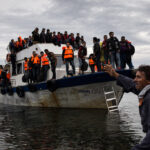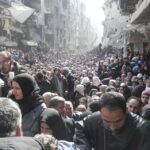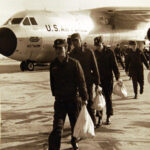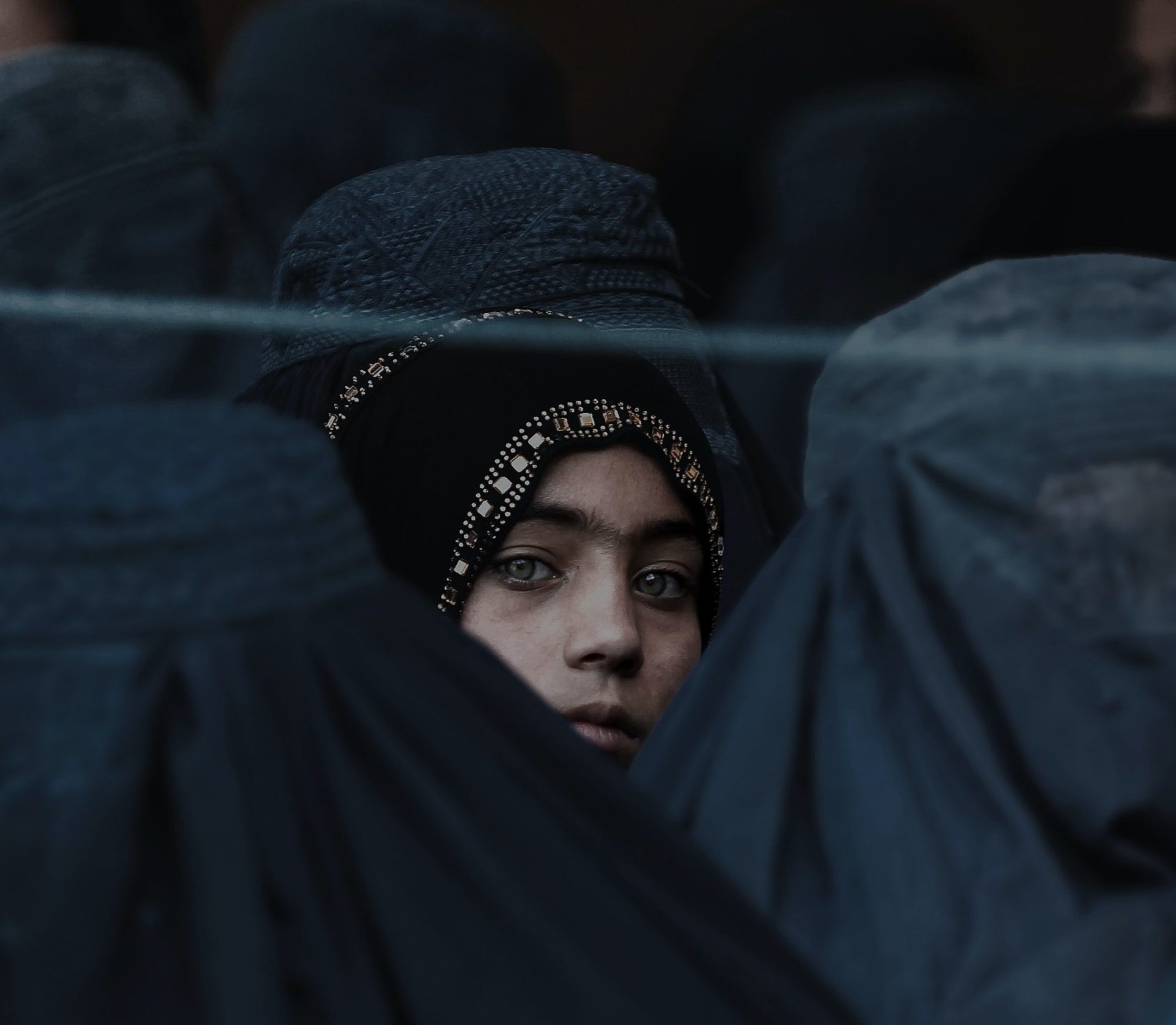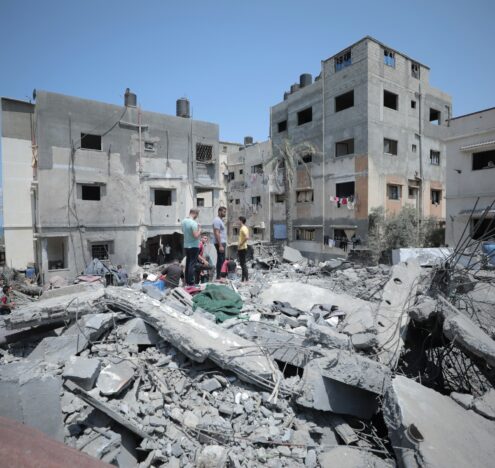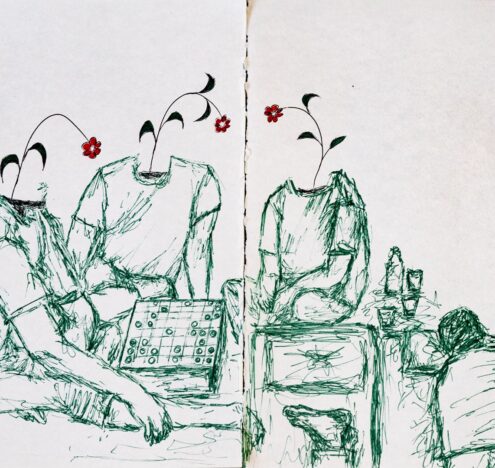Last August, after the Taliban took control of my country again, the harrowing image of two boys hanging and falling from a US plane evacuating Afghans circulated widely on social media. That plane embodied the difference between lives that mattered and those that didn’t. The latter fell to their graves, while the former rose, reaching the United States.
That horror has been etched in my mind; I cannot unsee or erase it. Six months later, I wonder if the distress and desperation in that image will ever stop haunting me. As the world is occupied with the Ukraine war, Afghans are experiencing some of their darkest days and nights. Famine seems imminent. Recently, a family friend said: “My pocket is so empty, I have nothing left to sell anymore. I should start feeding grass to my children or sell my kidney soon.”
Inequality in the Air
Planes have become a symbol of injustice to me and other Afghans. In January 2022, private jets carried the Taliban leaders in luxury to a meeting in Norway that felt to many like a legitimizing debut on the international stage. Meanwhile, in the months before the takeover, planeloads of deported Afghan refugees regularly continued to arrive from Europe, dumping them back into the ongoing conflict. During the US withdrew in August 2021, planes evacuated military dogs and pets from an animal shelter while Afghans scrambled to get on a plane to save themselves and their families from the Taliban. Today, countless remain stranded in Afghanistan and are at risk. Those who managed to escape struggle to rebuild their lives outside.
It is incomprehensible to me that, after 21 years, funds to compensate the families of the 9/11 victims could come at the cost of starving a poor nation. It shows the same unequal valuing of human lives that we witnessed in our skies.
I was a master’s student in London when Afghanistan fell to the Taliban. Almost seven months later, like many Afghans, every day I wake from frightful dreams to face disturbing realities from my homeland. While I still carry the gravity of the shock from the evacuation images, the Taliban keep perpetuating more abuses day by day.
Abandoned Skies
A few weeks after the August evacuations, an air traffic image circulated showing that no planes were passing through Afghan skies. Seeing the map was chilling. It was the most accurate image of how my Afghanistan felt: abandoned and bereft. Behind those planes are politicians who have the longest commutes: from their heads to hearts.
Six months after the US departure from Afghanistan, President Joe Biden blocked access to half of Afghanistan’s $7 billion reserves, making it available to families of victims of the 9/11 attack on the US should they succeed in litigation seeking the funds. As an Afghan, I found this news shocking, enraging, and painful. Afghans are already suffering a harsh winter, desperate hunger, and economic hardship exacerbated by the US’s suspension of recognition of Afghanistan’s central bank, Da Afghanistan Bank. The country’s economy has been strangled.
It is incomprehensible to me that, after 21 years, funds to compensate the families of the 9/11 victims could come at the cost of starving a poor nation. It shows the same unequal valuing of human lives that we witnessed in our skies.
The Impact on Afghan Women
Afghanistan was invaded in the name of saving Afghan women and eradicating terrorism. Twenty-one years later, it seems like the international community and the Taliban have both held Afghan women and citizens hostage. A struggle for power between the two has only resulted in hunger, death, and further deprivation. Meanwhile, the Taliban’s door-to-door home searches have instilled more fear in the hearts and minds of Afghans. Many have burned their documents, photos, awards, and memories out of fear, as they await the knock on their door.
In recent weeks the Taliban cracked down hard on women’s rights activists. They broke down women’s doors in the middle of the night, raided safe houses, and coerced confessions from women’s rights protesters. Women activists who fearlessly chanted “bread, work, freedom” on the streets of Afghanistan’s cities have been abducted and beaten. Some reappeared, looking shaken and terrified, praising the Taliban in a propaganda video; the fate of others remains unknown.
The Separation of Politics and Aid
Humanitarian aid for Afghans and the release of Afghan assets needs to be separated from the politics of recognition and legitimacy for the Taliban. Conflating the two will lead to more suffering.
The Taliban appear to be finding ways to benefit from the humanitarian crisis. It shields them from blame before some of the population—they can point the finger at the foreigners. And it compels the international community to urgently and intensively engage with them, as donors seek to get aid to starving Afghans, in ways that the Taliban see as conferring legitimacy. The international community has significant power to hold the Taliban accountable — the Taliban craves legitimacy and needs funding. This power must be used to hold the Taliban to account for their human rights violations, not to punish the Afghan people.
The failure of Afghanistan is a collective failure, and healing Afghanistan is a collective responsibility. Treating Afghanistan as a “lesson learned” does not repair the harm done to the people of Afghanistan, nor will it heal our open wounds. It won’t make the world a better and more promising place. But releasing Afghanistan’s assets, providing humanitarian assistance sufficient to meet the needs, and pressuring the Taliban to end their human rights abuses, will.



